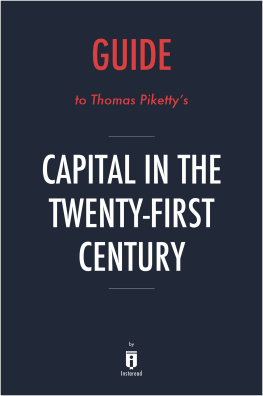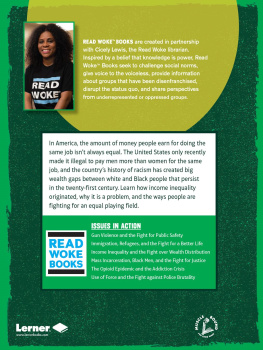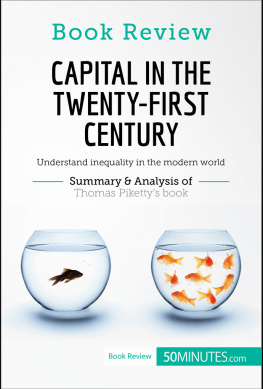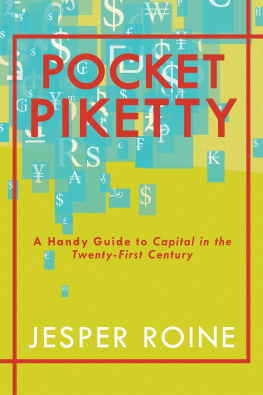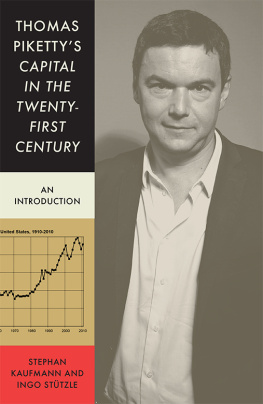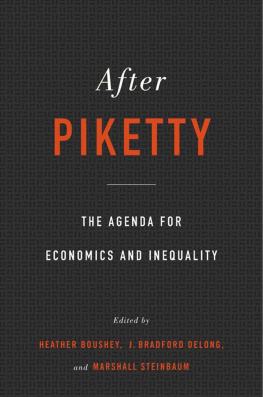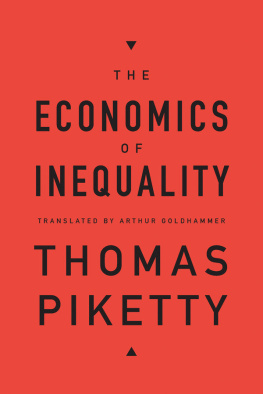First published 2016
by Routledge
2 Park Square, Milton Park, Abingdon, Oxon OX14 4RN
and by Routledge
711 Third Avenue, New York, NY 10017
Routledge is an imprint of the Taylor & Francis Group, an informa business
2016 Steven Pressman
The right of Steven Pressman to be identified as author of this work has been asserted by him in accordance with Sections 77 and 78 of the Copyright, Designs and Patent Act 1988.
All rights reserved. No part of this book may be reprinted or reproduced or utilised in any form or by any electronic, mechanical, or other means, now known or hereafter invented, including photocopying and recording, or in any information storage or retrieval system, without permission in writing from the publishers.
Trademark notice: Product or corporate names may be trademarks or registered trademarks, and are used only for identification and explanation without intent to infringe.
Disclaimer: Every effort has been made to identify the owners of copyrights and to obtain permission to reproduce copyrighted material.
British Library Cataloguing in Publication Data
A catalogue record for this book is available from the British Library
Library of Congress Cataloging in Publication Data
Pressman, Steven, 1952
Understanding Pikettys capital in the twenty-first century / Steven Pressman.
pages cm
1. Piketty, Thomas, 1971 Capital au XXIe sicle. English. 2. Capitalism.
3. Income distribution. I. Title.
HB501.P6923 2015
332.041dc232015013488
ISBN: 978-1-138-93974-5 (hbk)
ISBN: 978-1-138-93975-2 (pbk)
ISBN: 978-1-315-67472-8 (ebk)
Typeset in Bembo
by Keystroke, Station Road, Codsall, Wolverhampton

This book began in May 2014, shortly after the release of Pikettys Capital in the Twenty-First Century . When I finished my semester, I immediately took off for Paris, where I was an Invited Professor of Economics at the University of Paris 13 thanks to the efforts of Dany Lang. Pikettys book was selling like hot cakes (it was #1 on Amazon) and it was not easy to get a copy; many places, including Amazon, were sold out of all the copies they had and Harvard University Press (the publisher of the book) was running out of copies due to its unexpected success.
Fortunately, I got a review copy from the publisher shortly before I was ready to head to Paris. I was reviewing the book for Dollars & Sense , where I had been a regular reviewer for several years. Since the book was of great interest to me (I have written extensively on poverty and income inequality) and as everyone was interested in Pikettys book, I thought that this was an obvious choice as a book to review. Even better, I would be able to read the book in Pikettys home town of Paris.
It was Chris Sturr, co-editor of Dollars & Sense , who encouraged me to start blogging about the book while I was reading it. I even began by blogging on some of the early reviews of the book while still in the US.
Many other people helped along the way, including the Economics students and faculty at Paris 13, especially Pascal Petit, the faculty and students at Chadron State College, and the American Institute for Economic Research (the places where I first presented my thoughts on Piketty).
A special note of gratitude is due to Mark Price of Keystone Research, who sent me some of Pikettys Excel spreadsheet estimates so that I could verify that I understood how he obtained the estimates of inequality that appear in Capital in the Twenty-First Century .
Finally, thanks are due to various people and publishers who allowed me to reproduce figures for this book. The Financial Times for letting me reproduce the controversial figure of Chris Giles that appeared there. Bloomsbury Press and Richard Wilkinson for allowing me to reproduce the Figure 12.1 from The Spirit Level by Richard Wilkinson and Kate Pickett. Olivier Berruyer allowed me to reproduce his Figure estimating the US Gini Coefficient back over the past century. Last but not least, thanks to Thomas Piketty for allowing me to reproduce the figures from his website that appear in his book and for writing such a stimulating and important bookso much so that it led to this book.
Contents
7
A Taxing Wealth of Policy Options
The man of great wealth owes a peculiar obligation to the state because he derives special advantages from the mere existence of government.
Theodore Roosevelt
Introduction
Part Four concerns public policy. It is about the role of the state and what the state can do about inequality. It addresses issues such as how large the state should be, appropriate tax policy, and the problem of government debt. Part Four has been the most criticized part of Capital in the Twenty-First Century , especially its main policy proposal, a global wealth tax. On the other hand, it is probably the least read part of the book.
Criticism of the global wealth tax has come from across the entire political and economic spectrum. Those on the right have objected vehemently to it. Some opponents of higher taxes have engaged in gratuitous name calling, deeming anyone a socialist who proposes higher taxes for whatever reason. Ross Douthat (2014) suggests in his New York Times op-ed column that conservatives attacking the book have not really read it. Yet, he thinks he understands the argument well enough to proclaim that Karl Marx is back from the dead. Likewise, James Pethokoukis (2014) in The National Review proclaims that Piketty is some sort of Marxist. These are people who understand neither Marx nor Piketty. Yes, there is a similarityboth Marx and Piketty see problems with capitalism. But who doesnt see problems with capitalism, especially after the fall of Lehman Brothers and the Great Recession. Based on this criterion, nearly everyone counts as a Marxist.
Almost as bad have been objections that higher taxes would give the government more money to wasteas if businesses never wasted money and consumers always spent their money cautiously and rationally (e.g., households would NEVER apply for or get mortgages they couldnt possibly repay). The more reasonable objections from the right have focused on the disincentives to work hard, earn money, accumulate wealth, and provide for ones children and grandchildren as a result of the wealth tax (Mankiw 2014).
Those on the left and toward the center of the political spectrum have generally supported a global wealth tax in principle. However, their main objection is that this policy proposal is impractical because it could never get passed by legislators. Political and popular opinion in the US runs strongly against any tax increases. Opposition would run stronger against a tax stemming from some international agreement requiring nations to share information on individual wealth holdings. Somewhat ironically, after contending that such a global wealth tax would never be enacted, these critiques typically push other policies, invariably the personal favorites of those criticizing Piketty, that are just as unlikely to get enacted. Moreover, these are all policies that Piketty supports; he just does not think that they can remedy the problem of wealth inequality. This is why he does not advocate them as strongly as he does a global wealth tax. Before we get to the wealth tax, however, we need to take a step back with Piketty and look at public policy in general.
Chapter 13A Social State for the Twenty-First Century
This first policy chapter provides a big picture, focusing on the economic role of the state. After summarizing the main lesson from the first three parts of the book, it introduces the idea of a global wealth tax. Piketty (p. 471) is clear that his proposal is somewhat utopian, but contends it is better than a progressive tax on income. An income tax gets at the problem of income inequality, the main distributional problem in the late twentieth century, but does not address the problem of wealth inequality. To the contrary, it perpetuates wealth inequality because it only taxes returns to wealth, or the income flows from wealth. Since large wealth holdings are not reduced, wealth continues to earn large returns. Wealth inequality needs to be addressed directly according to Piketty, by taxing wealth.



